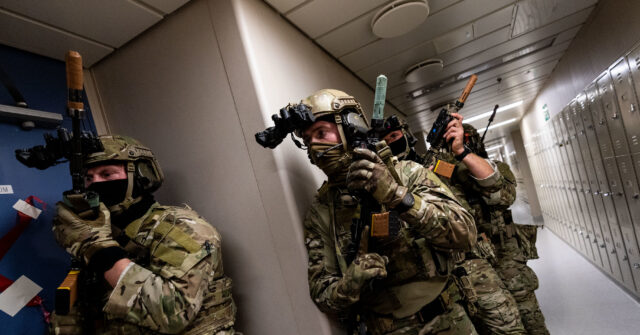**WW3 Mania: UK Revives Cold War-Era War Plans for Russian Missile and Cyber Attacks**
In a move that has sparked concerns among security experts, the UK government has announced plans to revive and update its Cold War-era Government War Book, a detailed plan for dealing with an attack on the nation by a foreign power. The decision comes as war mania continues to ramp up, with tensions between Russia and Western nations reaching a boiling point.
The Government War Book, last updated over 20 years ago, outlines the UK's response to various types of attacks, including conventional missile strikes, nuclear bombardment, and major computer hacking attacks. However, experts have noted that the plans are woefully out of date, with no contingencies for catastrophic cyberattacks, such as the recent European power cut that highlighted the fragility of sophisticated systems.
At the heart of the UK's Cold War-era planning is its response to a direct Russian attack on British territory, an eventuality that has not occurred since the end of the Cold War. The government is said to be weighing the continuity of its leadership in the aftermath of such an attack, with Whitehall insiders suggesting that the public's trust and confidence would be crucial.
The revived plans are also focused on protecting critical national infrastructure, such as nuclear power plants, from Ukraine-style strikes. These attacks have become a major concern, with Russia's threats against London for its support of Ukraine having escalated in recent years.
The prospect of a direct Russian assault on Great Britain may seem far-fetched, but the UK government is taking no chances. The country's independent nuclear deterrent was deemed sufficient to guarantee its safety during the Cold War era, but experts now recognize that such a deterrent is not enough to protect against cyberattacks and other forms of modern warfare.
In fact, the UK has sold off most of its bunkers, built during the Cold War period, which were deemed too old and obsolete. However, there are still some hidden reserves, including the Pindar bunker beneath Whitehall, which remains in operation today. The exact extent of the tunnels connecting Pindar to other government buildings is unknown, but it is believed that there is at least one to Downing Street for rapid entry.
As tensions between Europe and Russia continue to rise, the public mood on the potential for a Third World War has become increasingly alarmist. A recent poll conducted by YouGov found that large numbers of citizens in Western countries believe that "World War 3 is likely in the next 5-10 years". The French were the most alarmed, with an aggregate of 55 per cent saying it was likely, followed closely by Spain, Italy, and the United States.
However, not all nations share this optimism. Germany's respondents were fractionally more optimistic, with small pluralities saying they believed war was unlikely in the next five to ten years. But even among German citizens, confidence in their military's ability to defend the nation is lacking, with only 16 per cent expressing confidence and a staggering 74 per cent expressing no confidence.
The greatest concern, according to YouGov's poll, is tensions between Europe and Russia, followed closely by Islamism. Spanish respondents were outliers, however, with a strong majority believing that tensions between Europe and the United States are the biggest threat to peace.
As the world teeters on the brink of chaos, one thing is clear: the UK government is taking its Cold War-era war plans seriously, reviving them in an effort to stay ahead of the curve. But will it be enough to prevent a catastrophic conflict? Only time will tell.
